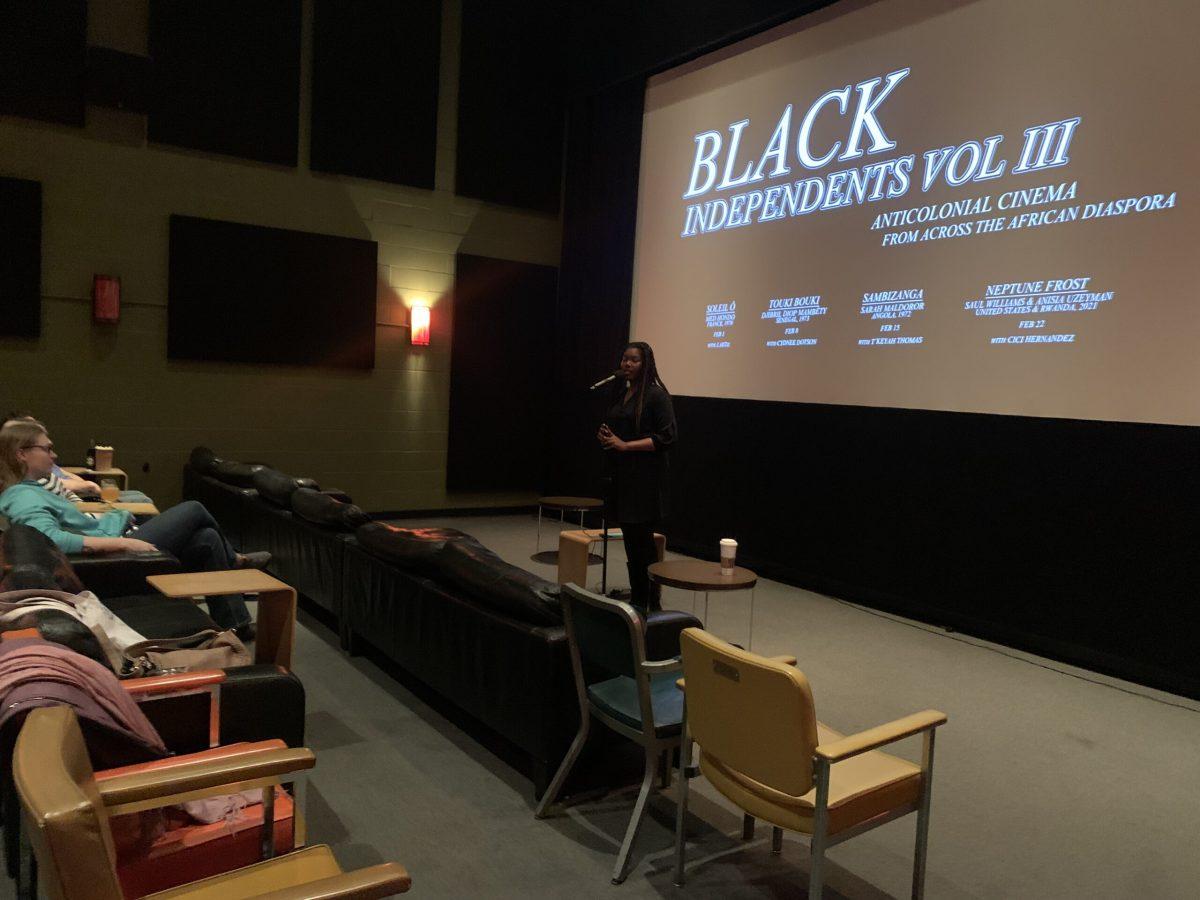
The Ragtag Cinema’s series, which explores anticolonial cinema from throughout the African Diaspora, had its second edition, featuring the 1973 Senegalese film and a performance from local artist Cydnee Dotson.
On Feb. 8, Ragtag Cinema showcased the 1973 Senegalese film “Touki Bouki” accompanied by a performance from local artist Cyndee Dotson. The second part of the “Black Independents Vol. III” series, the film both subverts and embraces African culture and is considered by many film critics to be the peak of African cinema.
Dotson began the night with shortened performances of “Green Eyes” and “Didn’t Cha Know,” by Erykah Badu. Her voice served as a vulnerable, striking center of the performance. Dotson performed from a personal place, saying she handpicked songs that “highlighted emotions that are distinct from a Black woman’s perspective on life” and created a timeline of a grieving process.
The night then pivoted to the 1973 Senegalese film “Touki Bouki,” directed by Djibril Diop Mambéty. The film tells the tale of two lovers, Mory and Anta, who seek to leave Africa in search of prosperity in Paris. However, they are not above using illegal tactics to earn the money needed to leave their home, creating similarities to the 1967 film “Bonnie and Clyde.” Mambéty tells the film’s story in a non-linear structure, while inundating the film with a unique soundscape filled with road noise and city sounds.
In 2018, a jury of 15 film critics at the Tarifa-Tangier African Film Festival voted “Touki Bouki” as the greatest African film ever produced. BBC Culture recognized the film as the greatest foreign-language film originating from Africa. Influential American director Martin Scorsese also lauded the film and had it restored in 2008 through his World Cinema Project. Beyoncé and Jay-Z drew headlines in 2018 for referencing the film in promotional images for their “On the Run II” Tour as well.
Notoriety aside, Mambéty imbues the film with a fascinating sense of naturalism. He ties humanity — in both action and emotions — to the natural world to show our connection to nature and our capacity for evil. The film starts with a brutal depiction of cows being killed for industry purposes that Mambéty uses to show characters approaching rock bottom under the face of an industrialized Senegal. Through small touches like connecting the breath of Anta to the ebb and flow of the ocean or making birds sound like the laughter of Anta’s aunt, Mambéty creates a romance that may be laughed at from above but will continue to last in the eyes of the protagonists.
Beyond the film, the Ragtag’s “Black Independents Vol. III” series has created a clear context of how America is viewed through both a racial lens and throughout the world. At one point in the film, Mory and Anta steal a car painted to look like an American flag. Much like last week’s film, “Soleil Ô,” this film emphasizes that while America ignores Africa, Africa is watching and criticizing America. Overall, the series has worked to provide a global perspective to America’s actions.“Touki Bouki,” however, is most compelling when it subverts the African oral tradition and looks behind the curtain of mythology. Mambéty seems to dare the audience to ask how much of our story — of our history, even — has been exaggerated by the people at the center of it while encouraging the audience to question the truthfulness of the entire story. When the personality of certain characters appears extreme or undefined, Mambéty seems to leave space for the audience to realize these storytelling risks ultimately create a thought-provoking final product.
In the second edition of “Black Independents Vol. III,” “Touki Bouki” masterfully subverted the African oral tradition while legitimizing its reputation as one of the greatest films to come out of Africa. On Feb. 15, Ragtag Cinema will showcase the 1972 Angolan film “Sambizanga.” Audiences can buy tickets at the door or ahead of time at www.ragtagcinema.org.
Edited by Egan Ward | [email protected]
Copy edited by Kyla Pehr and Grace Knight